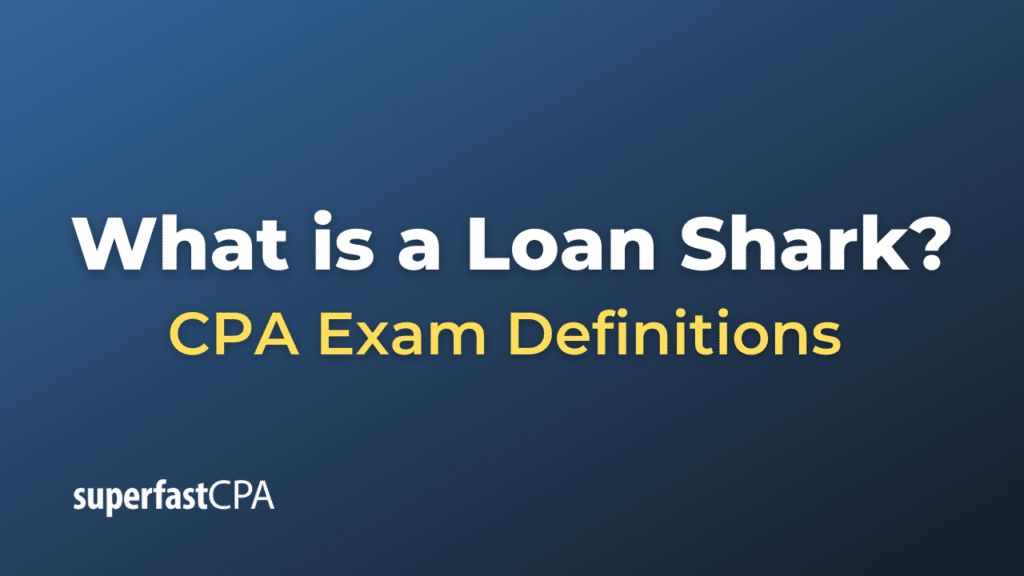Loan Shark
A loan shark is an individual or entity that offers loans at extremely high interest rates, often under illegal conditions. The term is typically used to refer to informal or unregulated lenders that engage in predatory lending practices. Loan sharks often enforce repayment by blackmail or threats of violence.
Loan sharking is generally illegal and is associated with organized crime. The practice preys on individuals who cannot obtain loans from traditional sources, such as banks and credit unions, usually due to poor credit history or lack of a steady income.
Here is a hypothetical example:
John has a poor credit history and cannot obtain a loan from a bank to cover an urgent expense. He turns to a local loan shark, who lends him $1,000, but at an exorbitant interest rate of 50% per month. John agrees because he needs the money immediately.
If John cannot repay the loan on time, the interest compounds rapidly, and his debt balloons. If he continues to be unable to pay, the loan shark might resort to intimidation, threats, or even violence to enforce repayment.
The exploitative practices of loan sharks have led to many countries implementing laws to protect consumers from such predatory lending practices. If you or someone you know is considering a loan from a non-traditional source, it’s essential to understand the terms and the potential risks involved and to explore safer alternatives if possible.
Example of a Loan Shark
Let’s consider a fictional scenario to illustrate the concept of a loan shark:
Jenny is a single mother working a low-wage job. Her car, an essential asset for her commute to work, suddenly breaks down. The cost of repairs is $2,000 – an amount Jenny doesn’t have.
Given her low income and poor credit score, Jenny is unable to secure a loan from a bank or other conventional financial institution. Feeling desperate, she turns to a local individual known for lending money to people in her situation – a loan shark.
The loan shark agrees to lend Jenny the $2,000 she needs. However, he imposes an extremely high-interest rate of 10% per week. Jenny, desperate to repair her car and resume her work, agrees to these harsh terms.
After four weeks, Jenny owes the loan shark $2,000 in principal plus $800 in interest ($2,000 * 10% * 4 weeks). Despite her best efforts, she is unable to repay more than $500 of her debt. The remaining $2,300 ($2,300 = $2,800 – $500) is subjected to the 10% weekly interest rate, compounding her debt rapidly.
If Jenny continues to struggle with repayments, her debt could balloon out of control because of the high-interest rate. Moreover, the loan shark might start using intimidation or threats to force Jenny to repay the loan, creating a stressful and potentially dangerous situation.
This example illustrates why it’s crucial to avoid loan sharks and seek out safer, legal alternatives for borrowing money. It also highlights the importance of financial literacy and planning to avoid getting into such predicaments.













